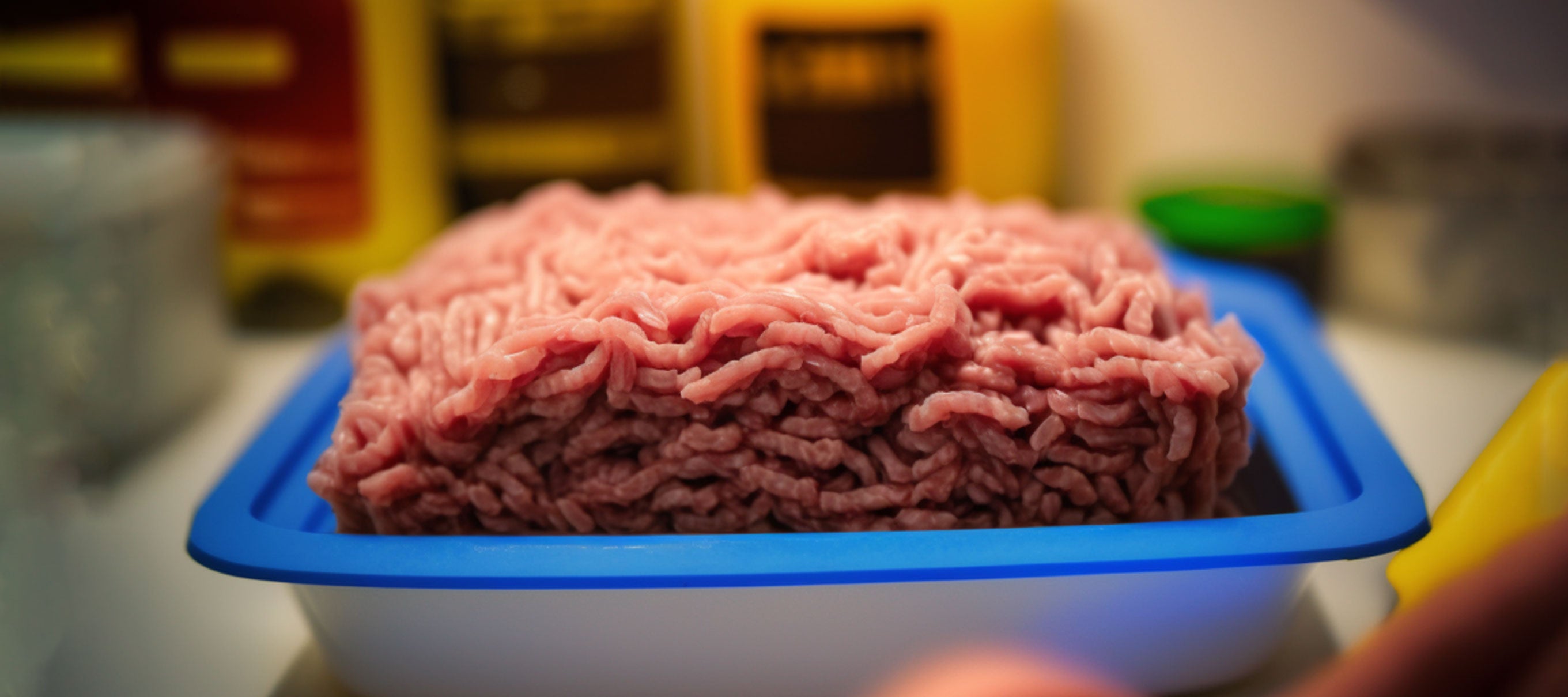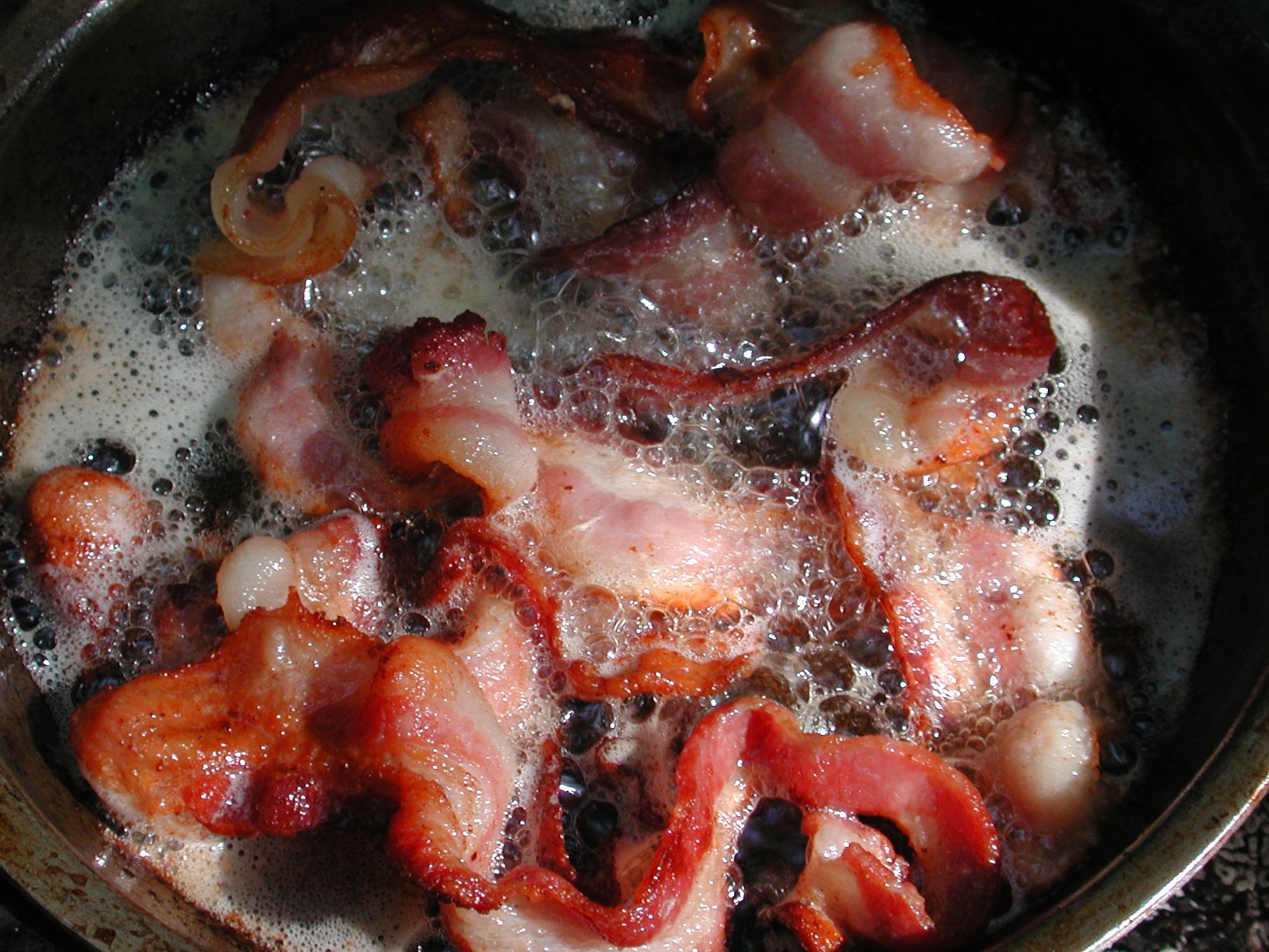

Articles
How Long Does A Refrigerator Last
Modified: November 2, 2024
Discover how long a refrigerator typically lasts and learn tips to extend its lifespan. Read more informative articles about refrigerators.
(Many of the links in this article redirect to a specific reviewed product. Your purchase of these products through affiliate links helps to generate commission for Storables.com, at no extra cost. Learn more)
Introduction
A refrigerator is an essential household appliance that keeps our food fresh and helps us store perishable items for longer periods. It acts as a reliable partner in the kitchen, providing a cool environment for our groceries and beverages. However, like any other appliance, refrigerators have a limited lifespan and will eventually need to be replaced.
Understanding the lifespan of a refrigerator is crucial for homeowners and individuals in the market for a new appliance. By knowing how long a refrigerator typically lasts, you can make informed decisions about maintenance, repairs, and replacements. In this article, we will explore the factors that affect the lifespan of a refrigerator, discuss the average lifespan for different types of refrigerators, and provide tips on how to extend the life of your appliance.
Before diving into the specifics, it’s important to define what we mean by the lifespan of a refrigerator. The lifespan refers to the amount of time a refrigerator is expected to function optimally before it starts experiencing significant issues or becomes inefficient. Keep in mind that these timelines are estimated averages and can vary based on various factors.
Key Takeaways:
- Regular cleaning and maintenance, proper temperature settings, and adequate ventilation can significantly extend the lifespan of a refrigerator, ensuring optimal performance and reducing the risk of breakdowns.
- Outdated technology, frequent breakdowns, and inefficient cooling are signs that it may be time to consider replacing your refrigerator with a newer, more energy-efficient model to enjoy improved performance and advanced features.
Definition of refrigerator lifespan
The lifespan of a refrigerator is determined by several key factors. Understanding these factors will help you assess the longevity of your appliance and make informed decisions about maintenance and replacement. Here are the main factors that can affect the lifespan of a refrigerator:
- Quality of manufacturing: The quality of manufacturing plays a significant role in how long a refrigerator will last. A well-built and durable refrigerator is more likely to have a longer lifespan compared to one made with inferior materials or poor craftsmanship.
- Usage and maintenance habits: How you use and maintain your refrigerator can greatly impact its lifespan. Regularly cleaning the interior, keeping the condenser coils free from dust and debris, and avoiding overloading the refrigerator can help to prevent unnecessary strain on the appliance and prolong its lifespan.
- Environmental factors: The environment in which the refrigerator is placed can also affect its lifespan. Factors such as temperature fluctuations, humidity levels, and exposure to direct sunlight or extreme cold can impact the performance and longevity of the appliance.
- Technological advancements: Technological advancements in refrigeration systems have significantly improved the durability and efficiency of modern refrigerators. Older models may have a shorter lifespan compared to newer models that incorporate advanced features and technology.
These factors work together to determine how long a refrigerator will last. Let’s explore the average lifespan of different types of refrigerators to get a better understanding of what to expect.
Quality of manufacturing
When it comes to the lifespan of a refrigerator, the quality of manufacturing plays a vital role. A refrigerator that is built with high-quality materials and superior craftsmanship is more likely to have a longer lifespan compared to one of inferior quality.
Manufacturers who prioritize quality invest time and resources into ensuring that their refrigerators are durable and reliable. They use top-grade materials that can withstand the wear and tear of daily use. Additionally, they employ stringent quality control measures to ensure that each unit meets high standards before being released to the market.
On the other hand, refrigerators of lower quality may use subpar materials and have less attention to detail during the manufacturing process. This can result in a shorter lifespan and a higher potential for breakdowns and repairs. For example, cheap plastic components may break easily, leading to issues with door seals or hinges. Poor insulation may cause temperature inconsistencies or excessive energy consumption.
One way to assess the quality of a refrigerator is to look for reputable brands with a history of producing reliable appliances. These brands often have a reputation for using high-quality materials and having rigorous quality control standards in place. Reading customer reviews and consulting experts can also provide valuable insights into the overall quality and reliability of a refrigerator model.
While higher quality refrigerators may come with a higher price tag, they often prove to be a worthwhile investment in the long run. They are more likely to last longer and require fewer repairs, ultimately saving you money and hassle over time.
Remember that the quality of manufacturing is just one factor that influences the lifespan of a refrigerator. It’s essential to consider other factors such as usage habits, maintenance, and environmental conditions, which we will explore in the following sections.
Usage and maintenance habits
How you use and maintain your refrigerator can greatly impact its lifespan. By developing good usage and maintenance habits, you can ensure that your appliance functions optimally for a longer period. Here are some important habits to consider:
1. Regular cleaning: Keeping the interior of your refrigerator clean is crucial for its longevity. Regularly remove expired or spoiled food, wipe down spills and stains, and sanitize the shelves and drawers. This not only promotes food safety but also prevents the growth of mold and bacteria that can affect the performance of your appliance.
2. Condenser coil maintenance: The condenser coils of your refrigerator are responsible for releasing heat and maintaining proper cooling. Over time, these coils can accumulate dust and debris, which can hinder their efficiency and strain the compressor. Regularly vacuuming or brushing the coils to keep them clean can help improve energy efficiency and extend the lifespan of your refrigerator.
3. Avoid overloading: It’s tempting to cram as much food as possible into the refrigerator, but overloading can strain the appliance’s cooling system. This makes it work harder to maintain the desired temperature and can lead to premature wear and tear. Be mindful of the recommended maximum capacity and avoid overloading your refrigerator.
4. Proper temperature settings: Setting the temperature of your refrigerator to the recommended levels is crucial for optimal performance. Most refrigerators have a temperature range between 35-38°F (2-3°C) for the refrigerator compartment and 0-5°F (-18 to -15°C) for the freezer compartment. Avoid setting the temperature too low or too high, as it can impact food freshness and energy consumption.
5. Door usage: Opening and closing the refrigerator door frequently can cause temperature fluctuations inside, impacting the efficiency of the cooling system. Be mindful of how often you open the door and avoid leaving it open for extended periods. Additionally, ensure that the door seals are intact and free from debris to maintain a proper seal when closed.
6. Regular maintenance checks: Periodically inspect your refrigerator for any signs of wear, damage, or malfunction. Check the door seals for tightness, ensure that the interior lighting is working correctly, and listen for any unusual noises. Addressing potential issues early on can prevent further damage and extend the lifespan of your appliance.
By implementing these usage and maintenance habits, you can significantly increase the lifespan of your refrigerator. Remember to refer to the manufacturer’s instructions and guidelines for specific maintenance recommendations that are specific to your appliance model.
Environmental factors
The environment in which your refrigerator is placed can have a considerable impact on its lifespan. Various environmental factors can affect the performance and longevity of the appliance. Here are some key considerations:
1. Temperature fluctuations: Extreme temperature fluctuations can put additional stress on the cooling system of your refrigerator. If the ambient temperature surrounding the refrigerator is consistently high or low, it may cause the compressor to overwork or struggle to maintain the desired temperature. Avoid placing your refrigerator near heat sources such as ovens, direct sunlight, or areas with poor insulation.
2. Humidity levels: High humidity levels can lead to condensation inside the refrigerator, which can cause moisture to accumulate and potentially damage internal components. Conversely, extremely dry environments can cause the rubber gaskets on the doors to dry out and lose their effectiveness. Aim for a moderate level of humidity in the surrounding area to ensure optimal performance.
3. Ventilation: Proper ventilation is crucial for the efficient operation of a refrigerator. The appliance generates heat as it cools the contents, and without sufficient airflow, this heat can build up and affect performance. Ensure that there is enough space around the refrigerator for proper air circulation and avoid blocking the vents on the back or underneath the appliance.
4. Power supply stability: Fluctuations in the power supply, such as frequent power outages or voltage spikes, can negatively impact the internal components of your refrigerator. Consider investing in a surge protector or voltage stabilizer to protect your appliance from sudden power fluctuations that could potentially cause damage.
5. Water quality: If you have hard water or water with high mineral content, it can result in mineral deposits forming on the internal components of your refrigerator, such as the water dispenser or ice maker. Regularly cleaning and descaling these components can help mitigate the effects of hard water and extend the lifespan of your appliance.
By being mindful of these environmental factors and taking appropriate measures to mitigate their impact, you can help prolong the lifespan of your refrigerator. Maintaining a stable and suitable surrounding environment for your appliance ensures optimal performance and reduces the risk of premature wear and tear.
Technological advancements
Technological advancements in the field of refrigeration have greatly influenced the lifespan of modern refrigerators. Over the years, manufacturers have introduced various innovative features and improvements that enhance the durability, efficiency, and overall performance of these appliances.
One significant advancement is the use of more durable and efficient materials for construction. Modern refrigerators often utilize high-quality stainless steel, tempered glass, and other robust materials that are designed to withstand the rigors of daily use. These materials not only contribute to a longer lifespan but also give the appliance a sleek and modern appearance.
Another key technological improvement is the development of more energy-efficient refrigeration systems. Energy-efficient compressors and insulation help reduce power consumption and increase the longevity of the appliance. Refrigerators with energy-saving features are not only environmentally friendly but can also save you money on electricity bills in the long run.
Additionally, advancements in temperature control and monitoring systems have improved the precision and accuracy of maintaining the desired temperatures. This helps prevent temperature fluctuations and ensures optimal food preservation. Some modern refrigerators even come with smart technology that allows you to monitor and control the temperature remotely through a smartphone app.
Furthermore, the introduction of frost-free technology has eliminated the need for manual defrosting. This not only saves time and hassle for users but also prevents ice buildup that can damage internal components over time. Frost-free technology prolongs the lifespan of the refrigerator by reducing the strain on the cooling system and improving overall efficiency.
The average lifespan of a refrigerator can vary depending on the type of refrigerator and its specific features. Let’s take a look at the estimated lifespans for different types of refrigerators:
Different types of refrigerators
Refrigerators come in various types, each designed to cater to different needs and preferences. Understanding the different types of refrigerators is essential when considering their lifespan and functionality. Here are the main types of refrigerators available in the market:
- Top-Freezer Refrigerators: Top-freezer refrigerators are the most traditional and commonly found type. As the name suggests, the freezer compartment is located at the top, while the refrigerator section is below. These refrigerators are generally more affordable and have a relatively longer lifespan compared to other types.
- Bottom-Freezer Refrigerators: As the name implies, bottom-freezer refrigerators have the freezer compartment located at the bottom. This design allows for easier access to fresh food items in the refrigerator section, without the need to bend down frequently. Bottom-freezer refrigerators are gaining popularity for their user-friendly design and energy efficiency.
- Side-by-Side Refrigerators: Side-by-side refrigerators have the freezer compartment on one side and the refrigerator section on the other side. These refrigerators offer a wider storage space and allow for easy organization of items. However, the narrow compartments in both the freezer and refrigerator sections may limit the storage capacity of larger items.
- French Door Refrigerators: French door refrigerators combine the benefits of bottom-freezer and side-by-side refrigerators. They feature two side-by-side doors for the refrigerator section and a bottom freezer drawer. French door refrigerators provide ample storage space, flexibility, and a stylish design. However, these refrigerators tend to be more expensive than other types.
- Compact or Mini Fridges: Compact or mini fridges are small-sized refrigerators often used in dormitories, offices, or for additional storage. These fridges are compact in size and have limited capacity, making them suitable for storing drinks, snacks, and small quantities of food. Their lifespan can vary depending on the specific model and usage patterns.
Each type of refrigerator has its own advantages and drawbacks, and their lifespans can vary based on factors such as construction quality and usage habits. Let’s dive into the estimated lifespan for each type in the next section.
Estimated lifespan for each type
The estimated lifespan of a refrigerator can vary depending on the type of refrigerator you have. While these estimations are general guidelines, it’s important to note that individual factors such as usage patterns, maintenance, and environmental conditions can influence the actual lifespan. Here are the estimated lifespans for each type of refrigerator:
- Top-Freezer Refrigerators: On average, top-freezer refrigerators have an estimated lifespan of 10-20 years. These refrigerators tend to have a longer lifespan due to their simple design and fewer complex components.
- Bottom-Freezer Refrigerators: Bottom-freezer refrigerators typically have a similar lifespan to top-freezer models, ranging from 10-20 years. The bottom location of the freezer compartment often reduces strain on the compressor and improves overall efficiency.
- Side-by-Side Refrigerators: Side-by-side refrigerators have an estimated lifespan of 10-20 years. While they offer convenience and ample storage space, the numerous components such as crisper drawers, water dispensers, and ice makers can require more maintenance and may impact the lifespan.
- French Door Refrigerators: French door refrigerators, known for their modern design and flexible storage options, typically have a lifespan of 10-20 years. The additional features and complexity of the design may require more maintenance and repairs as compared to other types.
- Compact or Mini Fridges: Compact or mini fridges generally have a shorter lifespan compared to larger refrigerators. On average, their lifespan ranges from 5-10 years. The smaller size and lower-quality components can contribute to a shorter lifespan.
While these estimations provide a general idea, it’s important to remember that individual circumstances can influence the actual lifespan of your refrigerator. By implementing proper maintenance practices and following manufacturer guidelines, you can help extend the lifespan of your appliance.
Extending the lifespan of your refrigerator
To maximize the lifespan of your refrigerator, it’s important to follow some essential maintenance and care practices. Here are some tips to help you extend the lifespan of your appliance:
- Proper cleaning and maintenance: Regularly clean the interior of your refrigerator, including shelves, drawers, and door seals. Keep the exterior clean and wipe away any spills or stains immediately. Follow the manufacturer’s instructions for cleaning and maintenance.
- Temperature and settings: Set the temperature of your refrigerator and freezer compartments according to the manufacturer’s recommendations. Avoid extreme temperature settings that may strain the appliance. Check and adjust the temperature periodically to ensure proper cooling.
- Placement and ventilation: Place your refrigerator in a location away from heat sources such as direct sunlight, ovens, or heating vents. Allow sufficient space around the refrigerator for proper ventilation. Avoid blocking the vents on the back or underneath the appliance.
- Repair and replacement considerations: Address any signs of malfunction or damage promptly. If your refrigerator requires repair, consult a professional technician or contact the manufacturer’s customer service for assistance. When considering replacement, evaluate the cost of repairs versus the age and condition of the appliance.
By implementing these practices, you can help ensure that your refrigerator operates efficiently and lasts longer. Regular maintenance and care go a long way in extending the lifespan of your appliance, saving you money and reducing unnecessary waste.
Read more: How Long Does Cabbage Last In Refrigerator
Proper cleaning and maintenance
Regular cleaning and maintenance are essential for maximizing the lifespan of your refrigerator. By following proper cleaning practices and addressing maintenance tasks, you can ensure that your appliance operates efficiently and remains in good working condition. Here are some tips for proper cleaning and maintenance:
- Interior cleaning: Regularly clean the interior of your refrigerator to prevent the build-up of spills, stains, and food debris. Empty and remove all food items, and then wipe down the shelves, drawers, and walls with a solution of mild detergent and warm water. Rinse and dry thoroughly before placing food back in the refrigerator.
- Door seal maintenance: Inspect the door seals, also known as gaskets, to ensure they are free from dirt, food particles, and debris. Use a gentle cleaner or a mixture of vinegar and water to wipe down the seals. Make sure they are properly aligned and intact to maintain a tight seal when the door is closed.
- Condenser coil cleaning: The condenser coils, located either at the back or beneath the refrigerator, are responsible for releasing heat. Over time, these coils can accumulate dust and debris, causing the refrigerator to work harder and be less efficient. Use a vacuum cleaner or a soft brush to gently clean the coils and remove any build-up regularly.
- Freezer defrosting: If your refrigerator has a manual defrost system, it’s important to defrost the freezer compartment periodically. Ice buildup can impact the efficiency of the appliance and increase energy consumption. Follow the manufacturer’s instructions on how to defrost your freezer properly.
- Water dispenser and ice maker maintenance: If your refrigerator has a water dispenser or ice maker, refer to the manufacturer’s instructions for cleaning and maintenance. Regularly clean and sanitize these components to prevent the growth of bacteria or mold. Follow any recommended filter replacement schedules to maintain optimal performance.
- Regular inspections: Periodically inspect your refrigerator for any signs of wear, damage, or malfunction. Check for unusual noises, leaks, or temperature fluctuations. Address any issues promptly by either consulting a professional technician or contacting the manufacturer’s customer service for guidance.
By incorporating these cleaning and maintenance practices into your routine, you can help ensure that your refrigerator operates efficiently and lasts longer. Additionally, always refer to the manufacturer’s instructions and guidelines for specific cleaning and maintenance recommendations that are specific to your appliance model.
The average lifespan of a refrigerator is about 10-20 years, but proper maintenance and care can help extend its longevity. Regularly cleaning the coils, checking the door seals, and keeping the temperature at the recommended setting can all help prolong the life of your refrigerator.
Temperature and settings
Setting and maintaining the proper temperature in your refrigerator is crucial for keeping your food fresh and ensuring the longevity of your appliance. Here are some important considerations regarding temperature and settings:
- Refrigerator temperature: The ideal temperature range for the refrigerator compartment is typically between 35-38°F (2-3°C). This range helps to slow down bacterial growth and maintain the freshness of perishable foods. Use a refrigerator thermometer to monitor and adjust the temperature as needed.
- Freezer temperature: The freezer compartment should be set to a temperature of 0-5°F (-18 to -15°C). This temperature range ensures proper freezing and storage of frozen food items. It’s important to note that the freezer temperature may impact the efficiency of the entire appliance, so maintaining the proper temperature is crucial.
- Consistent temperature: Fluctuating temperatures can have a detrimental impact on food quality and the performance of your refrigerator. Avoid frequently changing the temperature settings, as it can cause the compressor to work harder and potentially lead to uneven cooling. Keep the doors closed as much as possible to maintain a stable internal temperature.
- Efficient cooling: Overloading the refrigerator can obstruct airflow and hinder proper cooling. This can lead to temperature inconsistencies and potential strain on the cooling system. Be mindful of the recommended maximum capacity and avoid blocking air vents with food items or containers.
- Power outage considerations: During a power outage, keeping the refrigerator doors closed as much as possible will help maintain a stable internal temperature. A fully stocked refrigerator will retain its coldness for longer periods during a power outage compared to a partially filled one. Consider using a power backup system or a generator if you live in an area with frequent power disruptions.
It’s important to note that the specific temperature settings and optimal ranges may vary depending on the make and model of your refrigerator. Always refer to the manufacturer’s instructions or user manual for precise temperature guidelines.
By properly setting and maintaining the temperature in your refrigerator, you can ensure the longevity of your appliance and keep your food fresh and safe. Regularly check the temperature using a thermometer and make adjustments as needed to ensure optimal cooling performance.
Placement and ventilation
The placement and ventilation of your refrigerator play a crucial role in its performance and lifespan. Proper placement and adequate airflow around the appliance can ensure optimal cooling and prevent unnecessary strain on its components. Consider the following factors when it comes to the placement and ventilation of your refrigerator:
- Location: Place your refrigerator in a well-ventilated area away from direct sunlight, heat sources like ovens or stoves, and areas with poor insulation. Excessive heat can make the compressor work harder and reduce the overall efficiency of the appliance.
- Adequate space: Ensure that there is enough space around the refrigerator for proper airflow. Leave at least 2-3 inches of clearance on all sides, including the back, top, and sides of the appliance. This allows heat to dissipate effectively and prevents the accumulation of dust or debris that can affect cooling performance.
- Ventilation grilles: Check the back or bottom of your refrigerator for ventilation grilles or vents. These grilles allow airflow to the condenser, helping to release heat generated by the refrigeration process. Keep these grilles clean and free from obstructions like dirt, dust, or pet hair to maintain optimal airflow.
- Avoid tight spaces: Avoid squeezing your refrigerator into tight spaces or cabinetry areas with no air circulation. Lack of proper airflow can cause the compressor to overheat and reduce the lifespan of the appliance. Ensure there is enough room for the refrigerator to breathe and for heat to dissipate efficiently.
- Elevated or suspended flooring: If your refrigerator is placed on an elevated or suspended flooring surface, ensure that it is level and stable. This is important to prevent vibrations or movements that can potentially damage internal components and affect the performance of the appliance.
Proper placement and ventilation of your refrigerator contribute to its optimal functioning, energy efficiency, and lifespan. By following these guidelines, you can help ensure that your appliance operates at its best, reducing the risk of breakdowns and extending its overall lifespan.
Repair and replacement considerations
Regular maintenance and occasional repairs are inevitable for any refrigerator. However, there may come a time when repair costs outweigh the benefits, and it becomes more practical to consider replacing your appliance. Here are some repair and replacement considerations to keep in mind:
- Cost of repairs: Consider the cost of the repair versus the age and condition of your refrigerator. If the repair costs are excessively high or approach the price of a new appliance, it may be more cost-effective to invest in a new refrigerator instead.
- Frequency of breakdowns: If your refrigerator is experiencing frequent breakdowns or requires repeated repairs, it may be a sign of underlying issues. Constantly repairing your appliance can be a hassle and a drain on your finances. Assess the frequency and severity of breakdowns to determine if it’s time to replace the refrigerator.
- Efficiency and performance: Over time, refrigerators may become less efficient, resulting in higher energy consumption and subpar cooling performance. If you notice a significant increase in your energy bills or observe a decline in the overall cooling efficiency of your refrigerator, it may be a sign that it’s nearing the end of its lifespan.
- Outdated technology: Technological advancements in refrigeration systems have improved efficiency, convenience, and energy-saving features. If your refrigerator lacks modern features or is outdated compared to newer models, upgrading to a more advanced appliance may be a worthwhile investment in terms of functionality and energy efficiency.
While considering repair or replacement, it’s important to weigh these factors against the age of your refrigerator. As a general rule of thumb, if your refrigerator is more than 10-15 years old and requires significant repairs, it might be more sensible to replace it with a newer and more energy-efficient model.
Signs that your refrigerator may need replacing
Here are some warning signs that indicate your refrigerator may be reaching the end of its lifespan and may need replacing:
- Strange noises or excessive vibration: Loud or unusual noises, such as banging or rattling sounds, can signal a mechanical issue in your refrigerator. Excessive vibration may also indicate problems with internal components. If these issues persist despite repairs, it may be an indication that it’s time to consider a new appliance.
- Frequent breakdowns or repairs: If your refrigerator requires frequent repairs or seems to break down often, it may be a sign of underlying issues. Constantly having to call for repairs can be inconvenient and expensive. It’s worth considering replacing the appliance if it has become unreliable and costly to maintain.
- Inefficient cooling and energy consumption: If your refrigerator is struggling to maintain proper temperatures or if you notice inconsistent cooling throughout the compartments, it may indicate a decline in its performance. Additionally, if you observe a significant increase in your energy bills without any change in usage patterns, it may be an indication of decreased energy efficiency.
- Outdated technology: If your refrigerator lacks features that are now standard in newer models, such as energy-saving modes, smart technology, or improved insulation, it may be time to upgrade to a more advanced appliance. Updated technology can provide greater convenience, energy efficiency, and better food preservation.
It’s important to consult with a professional technician to assess the specific issues with your refrigerator and determine whether repair or replacement is the best course of action. They will be able to provide expert advice based on the condition and lifespan of your appliance.
Strange noises or excessive vibration
Strange noises and excessive vibration coming from your refrigerator can be alarming and may indicate underlying issues with the appliance. While it’s normal for a refrigerator to emit some sounds during its operation, certain noises can be signs of potential problems. Here are some common noises and vibrations to be aware of:
- Banging or knocking: Loud banging or knocking sounds can indicate loose components within the refrigerator. This could be caused by a variety of factors, such as loose fan blades, improper installation, or a malfunctioning compressor. If the banging noise is persistent or gets worse over time, it’s advisable to have a professional technician inspect and diagnose the issue.
- Rattling or vibrating: Excessive rattling or vibrating sounds can be a result of loose or worn-out parts. Check to ensure that the refrigerator is level and stable. Loose condenser coils, fan motors, or refrigerant lines can also contribute to rattling noises. If the rattling is persistent and disruptive, it may be a sign of a mechanical issue that needs attention.
- Clicking or humming: A clicking noise can occur when the compressor switches on and off, which is normal. However, if the clicking becomes continuous or followed by a humming sound, it may indicate a problem with the compressor or the start relay. It’s best to have a professional assess and repair the issue to prevent further damage.
- Gurgling or hissing: Gurgling or hissing sounds are typically caused by the movement of refrigerant through the coils. While some noise is expected, excessive or continuous gurgling or hissing sounds may suggest a refrigerant leak or improper circulation. In such cases, it’s essential to contact a technician to diagnose and resolve the underlying issue.
- Fan motor noise: The fan in your refrigerator helps circulate cold air and maintain consistent temperatures. A humming sound from the fan motor is normal. However, if the noise becomes excessively loud or irregular, it could be due to a malfunctioning fan blade, motor bearings, or blade obstruction. Prompt attention is necessary to prevent further damage and maintain optimal cooling performance.
If you notice any strange noises or excessive vibration coming from your refrigerator, it’s important to investigate the source of the sound. Start by ensuring that the appliance is level and properly installed. Clean any dirt or debris around the coils, vents, and fan area. If the noise persists or worsens, it’s recommended to consult a professional technician to diagnose and address the issue.
Addressing strange noises and excessive vibration early on can help prevent further damage to your refrigerator and potentially extend its lifespan. Professional technicians have the expertise to identify the cause of the noise and take appropriate measures to resolve the issue, restoring your refrigerator to optimal performance.
Frequent breakdowns or repairs
Experiencing frequent breakdowns or the need for frequent repairs with your refrigerator can be frustrating and costly. While occasional repairs are expected over the lifespan of an appliance, a pattern of frequent breakdowns may indicate underlying issues. Here are some factors to consider when dealing with frequent breakdowns or repairs:
- Age of the refrigerator: As refrigerators age, they become more prone to mechanical failures and component wear. If your refrigerator is approaching or exceeding its expected lifespan, frequent breakdowns may be a sign that the appliance is nearing the end of its usable life. In such cases, it may be more cost-effective to replace the refrigerator rather than continuously invest in repairs.
- Quality of repairs: If you consistently experience the need for repairs, it’s crucial to assess the quality of the repairs performed. Are the repairs being done by qualified professionals using genuine parts? Quality repairs help ensure the longevity of your appliance. If you find that the repairs are not lasting or the same issues keep recurring, it may be time to consult a different technician for a second opinion.
- Underlying issues: Frequent breakdowns can be indicative of underlying issues that are not being adequately addressed. It’s possible that the initial diagnosis or repair did not identify the root cause of the problem. It’s important to communicate with the repair technician and provide detailed information about the recurring issues to aid in an accurate diagnosis.
- Compatibility with current needs: Consider whether your refrigerator meets your current needs in terms of size, features, and energy efficiency. If you find that you consistently need repairs because the appliance is too small, overworked, or inefficient, it may be time to consider upgrading to a more suitable and reliable refrigerator.
- Cost-effectiveness: Assess the cost of repairs in relation to the value and age of the refrigerator. If the cost of repairs is significantly high and nearing the price of a new appliance, it may be more cost-effective in the long run to invest in a new refrigerator that comes with a warranty and updated features.
While occasional repairs are normal, frequent breakdowns can become a hassle and a drain on your finances. If you find yourself constantly dealing with repair issues, it’s crucial to evaluate the overall condition and usability of your refrigerator. You may determine that it’s more practical to replace the appliance to avoid ongoing repairs and ensure reliable performance.
Consulting with a professional technician for a comprehensive assessment of your refrigerator’s condition can help you make an informed decision about whether to continue with repairs or consider replacement.
Inefficient cooling and energy consumption
A refrigerator that exhibits inefficient cooling and high energy consumption can be both inconvenient and costly. If you notice a decline in cooling performance and a significant increase in your energy bills, it may be a sign that your refrigerator is not functioning optimally. Here are some factors to consider when dealing with inefficient cooling and energy consumption:
- Temperature inconsistencies: If different areas of your refrigerator are displaying varying temperatures or if the overall temperature is not reaching the desired levels, it may indicate a cooling problem. This could be due to a malfunctioning thermostat, defrost system, or improper airflow. Inefficient cooling can compromise the freshness and safety of your food.
- Dirty condenser coils: Dust, dirt, and debris can accumulate on the condenser coils located at the back or underneath the refrigerator. This buildup impedes heat dissipation, causing the compressor to work harder and reducing the overall efficiency of the appliance. Regularly cleaning the condenser coils can improve cooling performance and energy consumption.
- Inadequate door seals: Damaged or improperly sealing door gaskets allow cold air to escape and warm air to enter the refrigerator. This puts additional strain on the cooling system, leading to inefficient cooling and increased energy consumption. Test the door seals by placing a dollar bill between the closed door and the fridge. If it slips out easily, it may be time to replace the gaskets.
- Improper loading and organization: Overloading your refrigerator or blocking air vents with food items can obstruct proper airflow, compromising cooling efficiency. Ensure that there is sufficient space between items for proper air circulation. Organize items to allow for easy access and minimize temperature fluctuations when opening the door.
- Outdated or inefficient technology: Older refrigerator models may lack the energy-saving features and advancements found in newer models. Modern refrigerators often come with improved insulation, more efficient compressors, and advanced temperature management systems. Upgrading to an energy-efficient model can help reduce energy consumption and improve cooling efficiency.
If you are experiencing inefficient cooling and high energy consumption, consider taking the following steps to address the issue:
- Inspect and clean the condenser coils regularly to remove dust and debris.
- Check and replace damaged or worn-out door gaskets to ensure a proper seal.
- Refrain from overloading the refrigerator and ensure proper airflow around food items.
- Consider upgrading to an energy-efficient model that meets your current needs.
If these steps do not resolve the issue, it is advisable to consult a professional technician. They can assess your refrigerator, identify the root cause of the problem, and recommend the appropriate course of action, whether it be repairs or replacement.
Addressing inefficient cooling and high energy consumption is necessary to ensure the proper functioning of your refrigerator and reduce energy costs. It also helps maintain food safety and freshness, ensuring a healthier and more efficient kitchen environment.
Read more: How Long Does Bread Last In The Refrigerator
Outdated technology
Refrigerators with outdated technology may lack the advanced features and energy-saving capabilities found in newer models. If your refrigerator does not incorporate modern advancements, it may be worth considering an upgrade. Here are some factors to consider regarding outdated technology:
- Energy efficiency: Older refrigerators may consume more energy compared to newer models. Advancements in compressor technology, insulation, and temperature management systems have led to significant improvements in energy efficiency. Upgrading to an energy-efficient refrigerator can help reduce your environmental footprint and lower your energy bills.
- Convenience features: Modern refrigerators often come equipped with convenient features like water and ice dispensers, adjustable shelves, temperature-controlled compartments, and smart home integration. These features enhance the functionality and usability of the appliance, making everyday tasks more convenient and efficient.
- Improved food preservation: Newer refrigerators typically offer better food preservation capabilities through improved temperature control, humidity management, and specialized compartments for fruits, vegetables, and meats. These advancements help extend the freshness and quality of your food, reducing waste and enhancing your culinary experience.
- Smart technology: Many newer refrigerators feature smart technology that allows you to control and monitor your appliance remotely through smartphone apps. This gives you the ability to adjust settings, receive alerts, and even view the contents of your refrigerator while on the go. Smart features provide convenience and peace of mind, saving you time and ensuring food safety.
- Environmental considerations: Upgrading to a newer refrigerator means disposing of your old appliance responsibly. Consider recycling options or donating your old refrigerator if it is still in working condition. By choosing an energy-efficient refrigerator, you not only reduce energy consumption but also contribute to a sustainable future by reducing greenhouse gas emissions.
Conclusion
Understanding the factors that affect the lifespan of a refrigerator is crucial in making informed decisions about maintenance, repairs, and replacements. Factors such as the quality of manufacturing, usage and maintenance habits, environmental conditions, and technological advancements all play a role in determining how long your refrigerator will last.
By adhering to proper cleaning and maintenance practices, setting the correct temperature, ensuring proper placement and ventilation, and addressing repair and replacement considerations, you can significantly extend the lifespan of your refrigerator. Regular inspections and prompt attention to any signs of deterioration or malfunctioning help prevent further damage and costly repairs.
If you notice frequent breakdowns, inefficient cooling, outdated technology, or excessive energy consumption, it may be time to evaluate the condition of your refrigerator and consider a replacement. Upgrading to a newer, more energy-efficient model can provide improved performance, advanced features, and cost savings in the long run.
Remember that while technology and advancements have improved the longevity and functionality of refrigerators, each appliance will have a unique lifespan influenced by various factors. By taking proactive measures to care for your refrigerator, you can ensure its optimal performance and enjoy its benefits for years to come.
Frequently Asked Questions about How Long Does A Refrigerator Last
Was this page helpful?
At Storables.com, we guarantee accurate and reliable information. Our content, validated by Expert Board Contributors, is crafted following stringent Editorial Policies. We're committed to providing you with well-researched, expert-backed insights for all your informational needs.












0 thoughts on “How Long Does A Refrigerator Last”